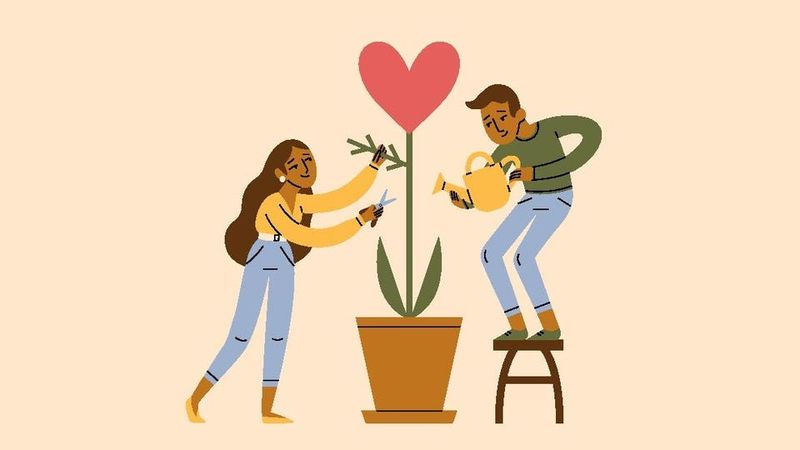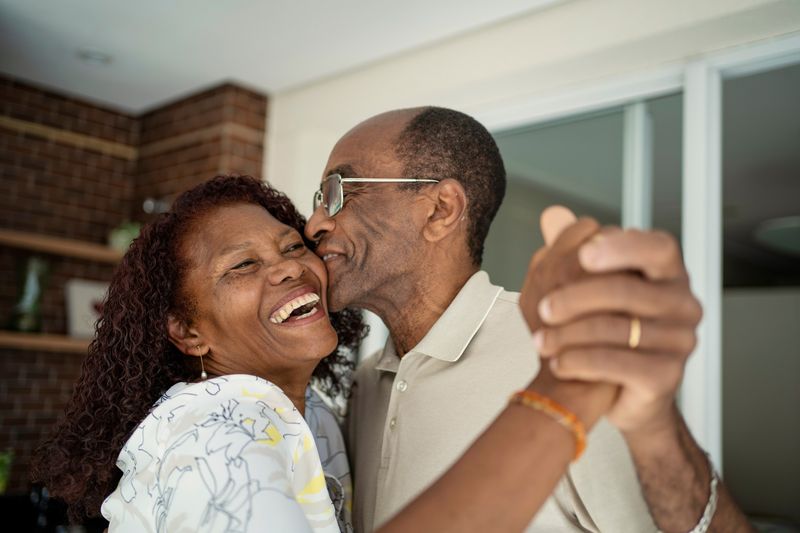17 Most Important Elements of Relationship Compatibility According to Psychology
Okay, let’s get real: love might start with chemistry, but it lasts through compatibility. All the cute texts and candlelit dinners in the world won’t save a relationship if you’re not on the same page where it matters.
Physical attraction and butterflies are fun—absolutely! But if you want something that sticks (like, through awkward family holidays and bad hair phases), you need more than just sparks. According to actual science—and not just your group chat—compatibility is the low-key hero of lasting love.
It’s not always hot, but it’s what gets you through the messy, hilarious, and sometimes totally frustrating parts of life together. Ready for some real talk about what makes couples solid? Here’s what actually counts, according to the experts.
1. Emotional Intelligence

Let’s be honest—life isn’t always sunshine and rainbows, and sometimes you just need someone who gets it when you ugly cry or laugh at the worst moments. Emotional intelligence is basically the secret sauce that helps couples navigate the messiness of real life. It’s the ability to recognize, express, and handle your own feelings, while also tuning in to your partner’s emotional world.
I’ve seen couples go from chaos to calm just because one person figured out how to ask, “Are you okay?” instead of assuming. The magic is in knowing when to talk and when to listen, without making it all about yourself.
If you can both manage your moods and support each other, you’ll weather pretty much any storm. Emotional intelligence isn’t about being perfect; it’s about being present and willing to learn each other’s emotional language.
2. Shared Core Values

Ever tried to decorate a room with someone who thinks neon green is neutral? That’s what it’s like when your values don’t line up. Core values are the beliefs and principles that guide your choices—big and small—and when yours clash with your partner’s, it can feel like you’re speaking different languages.
I’m not saying you need to agree on every tiny thing, but the big stuff—like honesty, kindness, or what “success” means—has to mesh. Relationships can survive a lot, but fundamental value gaps? They will keep popping up like a bad rash.
When your priorities connect, you move through life like a team. If they don’t, resentment sneaks in. And trust me, no amount of love can smooth over a constant fight about what matters most.
3. Similar Communication Styles

Raise your hand if you’ve ever misread a text and spiraled for hours. Communication styles make or break relationships, no joke. It’s not about always saying the right thing, but about understanding how your partner gives—and receives—information.
Maybe you’re all about deep talks while they keep it light and breezy. That’s fine! The trick is finding a rhythm that works for both of you. I learned the hard way that sarcasm doesn’t always land if your person expects straightforward honesty.
Respect is key; so is patience. If you can figure out how to truly hear each other—even when you disagree—you’ll avoid a ton of drama. Communication isn’t just about words; it’s about connection and trust.
4. Mutual Respect

True respect isn’t just for anniversaries and Instagram captions. It’s in the day-to-day—like sharing the last fry or listening to a rant without rolling your eyes. Mutual respect means you value each other’s opinions, space, and boundaries, even when you’re in the middle of a heated debate.
I watched my friend’s relationship fall apart because her partner brushed off her dreams as “cute.” That stuff stings! Healthy couples lift each other up, not tear each other down, and they never use love as a weapon.
When respect is solid, trust grows and drama shrinks. It’s not about agreeing on everything, but about never making the other person feel small. That’s what keeps love feeling safe—and honestly, pretty magical.
5. Conflict Resolution Skills

Ever seen a couple argue like they’re in a rom-com, then hug it out five minutes later? That’s not luck—it’s skill. Conflict is part of every relationship, but it’s how you handle those fights that sets you apart.
Blowing up or shutting down might feel satisfying in the moment, but nobody wins long-term. Couples that work it out together know when to take a breath, when to say sorry, and when to just laugh at how ridiculous things got.
The goal isn’t to avoid fights, but to learn how to disagree without turning love into a battlefield. If you both can walk away feeling heard—even after a messy argument—you’re doing something right.
6. Intimate Compatibility

Let’s not pretend that passion doesn’t matter. Physical intimacy is the spicy ingredient that can’t be overlooked, but it’s about more than just attraction. Intimate compatibility is about talking honestly—yes, even about the awkward stuff—and respecting each other’s needs, boundaries, and rhythms.
I once thought chemistry would fix everything, but if you can’t talk about what you like (and don’t), things get uncomfortable fast. The most connected couples make space for discovery and laughter, not shame or guilt.
Real talk: bodies change, moods shift, and life gets busy. Lasting compatibility means keeping the conversation open, so no one feels neglected or pressured. When you’re both on the same page, intimacy becomes a source of connection, not stress.
7. Lifestyle Preferences

You ever try living with someone on a totally opposite schedule? Nightmare. Lifestyle preferences sneak up on you when you’re not looking—like one person loving 6 a.m. runs while the other watches Netflix until midnight.
These habits sound small, but they add up. I’ve heard couples fight over everything from thermostat settings to how often they host friends. It’s wild how quickly those “quirks” become dealbreakers if you can’t find a middle ground.
You don’t need to be twins, but some overlap in daily rhythms makes life smoother. Compatible lifestyles mean you can actually enjoy the day-to-day, instead of constantly negotiating whose turn it is to do the dishes or walk the dog.
8. Attachment Style Compatibility

Whew, attachment styles—now that’s a therapy buzzword if I’ve ever heard one. But it’s real. The way we connect (or cling, or hide) comes from how we learned about love growing up, and it shows up everywhere.
If one partner needs constant reassurance while the other needs space, things can get tangled fast. I’ve watched couples do the push-pull dance for years without realizing what was really going on.
The key? Awareness. Being open about your triggers, and willing to meet in the middle, turns those differences from disasters into opportunities for growth. When both people feel safe—whatever their style—love feels more secure and less like a guessing game.
9. Similar Financial Mindsets

Money talks, and sometimes it yells. If you’ve ever argued over who pays for dinner or cringed at your partner’s spending habits, you know what I mean. It’s not about having the same paycheck; it’s about matching attitudes on spending, saving, and future plans.
My friend once broke up with a guy because his idea of budgeting was just…not. The tension was constant. When you’re on the same page financially, stress drops and trust rises.
It’s way less about numbers and way more about mindset. If you both value teamwork and honesty with money, you avoid so many headaches. Fights about finances are one of the top reasons relationships crash and burn—so don’t ignore this one!
10. Comparable Levels of Ambition

Ambition isn’t just about chasing corner offices or side hustles—it’s about how driven you both are to make things happen. If one partner is content coasting while the other is always reaching for more, friction builds fast.
I’ve seen perfectly nice couples argue over late nights at the office or dreams that felt too big—or too small. It’s not about matching resumes, it’s about respecting each other’s energy and drive.
When your ambition levels vibe, you celebrate each other’s wins without jealousy or judgment. And if you’re not on the same wavelength? Resentment sneaks in. So, talk about what motivates you early, and see if your energies line up for the marathon, not just the sprint.
11. Shared Humor and Playfulness

Ever met a couple who can crack each other up with just a look? That’s the dream. Shared humor is the glue that holds you together when everything else feels upside down. Playfulness keeps things fresh, helps you survive rough patches, and turns inside jokes into relationship gold.
I remember a friend’s partner always had a quip ready, even mid-argument—it helped them reset before things got ugly. Laughter makes hard stuff lighter and boring stuff fun.
If you find someone who laughs at your weirdest jokes and doesn’t mind a little silliness, you’re winning. Humor can’t fix everything, but it sure makes the ride smoother and way more fun.
12. Ability to Be Vulnerable Together

Let’s get real: being vulnerable is scary. But it’s the only way to build real intimacy. Dropping your guard and letting your partner see the messy, awkward parts takes serious guts—and the right person.
I used to think showing my flaws would push people away, but it turned out to be the opposite. When you both feel safe enough to say, “Hey, I’m scared” or “I don’t know,” deep trust grows.
Vulnerability isn’t about constant oversharing; it’s about knowing your secrets are safe and you won’t be judged. Couples who can be open together form a connection that’s hard to shake, no matter what life throws their way.
13. Compatible Social Needs

Ever dated a party animal when you’d rather stay home with a book? I have, and trust me—the struggle is real. Social needs are a sneaky compatibility factor that can make or break your weekends (and sanity).
Some people recharge around crowds, others need solo downtime to function. It’s all about finding a balance so nobody feels trapped or left out. My best friend found her match with someone who gets her need for Sunday silence after a Saturday night out.
You don’t have to be identical, but respecting each other’s social batteries means fewer fights over plans and more fun together. The key is compromise and not guilt-tripping each other for being different.
14. Similar Goals for the Future

The future sneaks up fast, and if you’re not on the same road, things get messy. Whether it’s kids, marriage, career moves, or where to live, long-term goals shape everything. I’ve watched couples hit a wall because their dreams went in opposite directions.
It’s not about predicting every twist and turn, but about seeing if your visions line up where it matters most. The best relationships feel like a team plotting adventures—even if plans change later.
If you’re both honest about your hopes and fears, surprises feel less scary. Having shared goals makes all the difference when it’s time for big decisions—or even the little ones that add up over time.
15. Respect for Each Other’s Independence

Clinginess is cute—for about five minutes. The healthiest couples know that spending time apart is just as important as being together. Independence means you each have your own interests, friends, and space, without jealousy or drama.
I once dated someone who hated when I went out solo, and it felt suffocating. Now, I know that supporting each other’s independence actually brings you closer. You appreciate the reunion more after doing your own thing.
It’s not about pushing each other away, but about respecting that you’re two whole people with your own lives. Love gets stronger when you give each other room to breathe—and miss each other, too.
16. Growth Mindset

Let’s face it: nobody stays the same forever. A growth mindset means you’re both open to learning, changing, and facing new challenges as they come. It’s the secret ingredient that helps couples survive everything from career shifts to bad haircuts.
I love seeing partners who cheer each other on—whether it’s going back to school, starting therapy, or just trying a new recipe. It’s about seeing change as exciting, not scary.
When you both believe in growing together (and apart), life feels less like a list of problems and more like a shared adventure. The best couples treat each mistake as a lesson, not a disaster.
17. Emotional Availability

You know that feeling when you’re talking, but the other person’s not really there? Emotional availability is the opposite. It’s when your partner is present, listening, and willing to share what’s going on inside.
I’ve dated people who shut down every time things got real, and it made me feel invisible. Emotional walls are exhausting. When someone’s available for real conversations, even the tough ones, you feel seen and valued.
It doesn’t mean you have to spill every secret, but it does mean being willing to let each other in. Emotional availability is the difference between a relationship that just survives and one that actually feels good.







